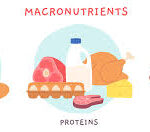Many people wonder, “Is sugar making me gain weight?” The short answer is yes, but there is more to it. Understanding how sugar affects your body is the first step toward making better food choices.
At drvishaltomar.com, we believe in simple and clear information. So in this blog, you’ll learn everything you need to know about sugar, how it impacts your weight, and how to manage it easily.
What Is Sugar?

Sugar is a type of carbohydrate. It gives your body energy. But not all sugars are the same. There are two main types:
Natural Sugars
These are found in fruits, vegetables, and dairy. For example, fruits contain a sugar called fructose, and milk contains lactose. These sugars come with vitamins, minerals, and fiber, so they are healthy when eaten in the right amounts.
Added Sugars
These are the sugars that food companies add to packaged foods and drinks. You’ll find them in soft drinks, sweets, biscuits, cakes, sauces, and even bread. These sugars add taste but not nutrition.
Why Is Sugar Linked to Weight Gain?
Now let’s look at the real reason sugar is linked to weight gain. Here are the main reasons:
1. Sugar Adds Extra Calories
First, sugar gives you energy, but it has no other nutrients. So when you eat sugar, you’re adding calories to your diet without feeling full. That means you might eat more without realizing it.
2. Sugar Spikes Insulin
When you eat too much sugar, your body releases more insulin. Insulin helps store sugar in your cells. If your body doesn’t use that sugar for energy, it turns into fat.
3. Sugar Triggers Cravings
After a sugary snack, your energy goes up fast. But soon after, it drops. This makes you hungry again. So you may end up eating more, which leads to weight gain.
4. Sugary Drinks Are Easy to Overconsume
Most soft drinks and packaged juices are full of added sugar. Since these drinks don’t make you feel full, it’s easy to drink more and add extra calories without noticing.
How Much Sugar Is Too Much?
According to the World Health Organization (WHO), adults should limit added sugar to no more than 6 teaspoons (about 25 grams) per day.
But many people eat double or even triple this amount, often without knowing. That’s why reading food labels is very important.
Where Is Hidden Sugar Found?

Many packaged foods have sugar, even if they don’t taste sweet. You’ll be surprised where sugar hides. Here are some common foods with hidden sugar:
-
Breakfast cereals
-
Ketchup and sauces
-
Flavored yogurt
-
Energy drinks
-
Ready-to-eat meals
-
Bread and buns
So, always check the label before you buy. Look for words like glucose, fructose, corn syrup, maltose, or sucrose. These all mean sugar.
Sugar and Belly Fat
Many studies show that too much sugar, especially from sugary drinks, increases belly fat. This kind of fat sits around your organs and is harmful to your health. It can increase the risk of:
-
Type 2 diabetes
-
Heart problems
-
Liver issues
-
Hormonal imbalance
So reducing sugar is not just for weight loss—it also protects your health.
Is Fruit Sugar Bad?
No, the sugar in fruits is not bad. That’s because fruits have fiber, vitamins, and antioxidants. The fiber slows down how fast your body absorbs sugar. This means fruit doesn’t cause a quick spike in blood sugar like sweets do.
So enjoy fruits, but in moderation. Whole fruits are always better than fruit juice because juice has more sugar and less fiber.
How to Reduce Sugar the Smart Way
Now that you know the truth about sugar, the next step is to reduce it. You don’t need to stop eating sugar completely. You just need to be smart about it. Here are some simple tips:
1. Cut Down on Sugary Drinks
Drink water, coconut water, or fresh lemon water instead of soda or packaged juice. If you need a sweet drink, try homemade smoothies using whole fruits.
2. Eat Whole Foods
The more natural your food is, the less sugar it has. Try eating more fruits, vegetables, nuts, seeds, lentils, and whole grains.
3. Read Labels
Before buying any packaged food, check how much sugar it has. Try to choose products with less than 5 grams of added sugar per serving.
4. Avoid Sugar in Tea and Coffee
Cutting sugar from your tea or coffee can save a lot of calories each day. Start by reducing one teaspoon at a time.
5. Choose Healthier Snacks
Instead of sweets or cookies, choose snacks like roasted chana, fruits, nuts, or yogurt.
6. Cook at Home
Home-cooked meals have less sugar compared to restaurant food or packaged meals.
7. Sleep and Stress Management
Lack of sleep and high stress can make you crave sugar. So getting good sleep and reducing stress can help you control your sugar cravings naturally.
What About Artificial Sweeteners?

Some people try to use sugar-free sweeteners to reduce sugar. While they may help in the short term, they are not always a good long-term solution. Some studies say they can increase cravings or cause other issues. So, it’s better to reduce your sweet taste instead of replacing sugar with something else.
Final Thoughts
Sugar is not the enemy, but eating too much of it is harmful. Most people gain weight because of hidden sugars in packaged foods and sugary drinks. By becoming aware of what you eat, you can reduce sugar and lose weight in a healthy way.
At drvishaltomar.com, our goal is to help you stay informed. You don’t need to fear sugar. You just need to understand it. Small changes can make a big difference in your health.
So from today, check your food labels. Drink more water. Eat fresh fruits. And say no to added sugar wherever you can.
Remember, your health is in your hands, and every step you take matters.




